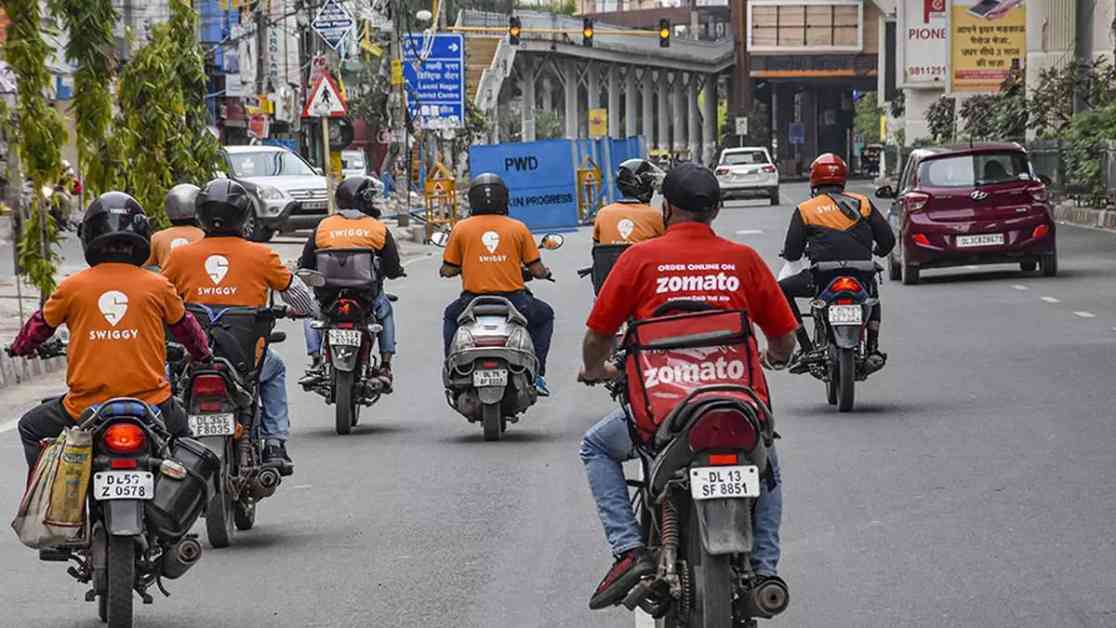In a groundbreaking move, the Ministry of Labour and Employment has secured a record-breaking ₹32,646 crore budget for the fiscal year 2025-2026, marking an unprecedented increase of almost 80% from the previous year. This substantial allocation reflects a pivotal moment in the country’s labor landscape, signaling a significant shift towards bolstering social security measures for gig workers. At the heart of this transformative initiative are four industry-leading aggregators—Urban Company, Zomato, Blinkit, and Uncle Delivery—who have recently enlisted on the e-Shram portal, a pivotal platform that promises to revolutionize the gig economy.
Transitioning from a pilot project to a full-fledged endeavor, the e-Shram portal aims to formalize the gig economy by registering platform workers and aggregators, bringing them under the protective umbrella of social security benefits. This strategic move not only lays the foundation for a more structured and secure gig workforce but also sets the stage for comprehensive healthcare provisions. The recent announcement by Union Finance Minister Nirmala Sitharaman in the Budget session underscored the government’s commitment to providing healthcare access to over 1 crore gig workers through the PM Jan Arogya Yojana, a significant milestone in prioritizing the well-being of this essential workforce.
Ministerial Commitment and Financial Implications
Mansukh Mandaviya, the Minister for Labour and Employment, expressed his gratitude for the historic budgetary allocation, recognizing the pivotal role of gig workers in India’s evolving economy. Mandaviya’s assertion that the Employment Generation Scheme (ELI) budget has doubled to ₹20,000 crore reflects a concerted effort to foster job creation and economic growth. Furthermore, the increased allocation under the Employees’ Pension Scheme and PM Shram Yogi Maandhan Yojana showcases the government’s commitment to enhancing social security measures, ensuring a more stable and prosperous future for workers across various sectors.
Underlining the transformative impact of the government’s initiatives, Mandaviya emphasized the importance of extending social security benefits to gig workers, acknowledging their invaluable contribution to the country’s economic landscape. The provision of identity cards, e-Shram registration, and healthcare security through the PM Jan Arogya Yojana is a significant step towards ensuring the well-being and security of nearly 1 crore gig workers. Mandaviya’s resounding commitment to extending these benefits to workers in other unorganized sectors highlights the government’s unwavering dedication to promoting dignity, security, and prosperity for all workers in the nation.
Future Prospects and Legislative Framework
As India’s gig and platform economy continues to expand rapidly, NITI Aayog’s projections paint a promising picture of growth and opportunity in this burgeoning sector. With estimates indicating that the workforce in this domain will surpass 1 crore by 2024-2025 and grow to 2.35 crore by 2029-2030, the future looks bright for gig workers across the country. The introduction of the Code on Social Security, 2020 (CoSS, 2020) has been a game-changer, defining crucial terms such as ‘aggregator,’ ‘gig worker,’ and ‘platform worker,’ while laying the groundwork for comprehensive legal provisions to safeguard the rights and well-being of gig and platform workers. As these codes await implementation, the imminent changes promise to usher in a new era of social security and protection for workers in the gig economy.
In conclusion, the Ministry of Labour and Employment’s ambitious endeavors, coupled with the unwavering support of key stakeholders and industry leaders, are poised to reshape the landscape of India’s gig economy. By prioritizing the well-being and security of gig workers, the government is not only fostering a more inclusive and sustainable workforce but also laying the groundwork for a more prosperous and equitable future for all workers in the country. With a record budget allocation and a comprehensive legislative framework, the stage is set for a transformative journey towards social security, dignity, and prosperity for every worker in India. So, as the e-Shram portal continues to pave the way for a more secure and structured gig economy, the future looks promising for gig workers across the nation.























